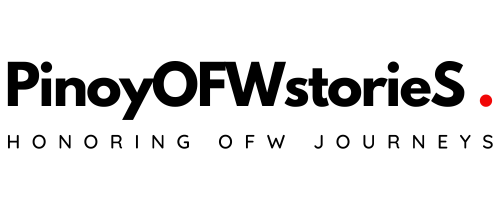In the heart of Barangay Mabuhay, nestled in the countryside of Luzon, lived Ana, a resourceful mother of three. She was known in her community for her warmth, her entrepreneurial spirit, and her knack for making ends meet even in the toughest times.
Ana had a small sari-sari store at the corner of her modest home. The shop was a lifeline for her family, but it also needed frequent restocking. To keep the business running, Ana often turned to the local cooperative, a place many in the barangay regarded as a financial lifeline.
Five years ago, Ana took her first loan of ₱10,000 to expand her inventory. She was diligent about her payments, always prioritizing her dues over personal expenses. The cooperative’s officers praised her for her responsible borrowing, and this encouraged Ana to borrow again when she was eligible.
“Bakit hindi?” she thought. “This is how businesses grow, diba?”
Over time, Ana borrowed repeatedly — first to repair her house after a typhoon, then to pay for her eldest son’s tuition, and later to buy a second-hand refrigerator for the store. Each loan was quickly consumed by the needs of her growing family and her modest aspirations.
The Cycle Continues
By the time her eldest son graduated, Ana found herself in a pattern she couldn’t seem to break. Every time she cleared a loan, she eagerly awaited the cooperative’s text message:
“Dear Ma’am Ana, you are now eligible for a new loan. Visit us today!”
It felt like a reward for her hard work and discipline, and she couldn’t resist the offer. But with every new loan, Ana noticed the repayments were becoming harder to manage. Her earnings from the sari-sari store barely covered the monthly dues, and she often dipped into her savings.
“Dear Ma’am Ana, you are now eligible for a new loan. Visit us today!”
Her husband, Pedro, began to worry. “Ana, baka naman nasosobrahan na tayo. Hindi na tayo nakakaipon dahil sa kakabayad ng utang.”
“Eh, paano? Kung hindi tayo umutang, paano ang panggastos? At least may negosyo tayo,” she countered.
A Moment of Realization
One day, Ana attended the cooperative’s annual general assembly. The guest speaker, a financial advisor, spoke about the dangers of over-borrowing and the importance of breaking the cycle.
“Loans are tools,” the speaker said. “But if used carelessly, they can become chains. Use them to build wealth, not just to survive.”
The words struck Ana. For the first time, she realized she wasn’t using her loans to grow her business or secure her family’s future. Instead, she was using them to patch holes in her finances — holes that seemed to get bigger with each cycle.
Breaking Free
Determined to change, Ana made a plan. She would take one final loan, but this time, she would use it wisely. She borrowed ₱50,000 to buy a more diverse inventory for her store and invested in a tricycle for Pedro, who started earning extra as a driver.
Loans are tools, but if used carelessly, they can become chains. Use them to build wealth, not just to survive.
With increased income, Ana was able to pay off her debts faster. She also started a small savings fund, something she had never done before. It wasn’t easy — saying no to another loan was harder than she expected — but Ana stood firm.
Years later, Ana looked back at her journey with pride. She still ran her sari-sari store, but now, it was thriving. More importantly, she had learned to manage her finances and break free from the cycle of borrowing.
Reflection:
Ana’s story mirrors a widespread mentality among Filipinos, where the opportunity to take a loan or borrow money is often seized without fully considering the long-term consequences. Many prioritize the immediate availability of funds over a thorough evaluation of their capacity to meet the monthly payments or obligations that come with it. This approach, while often driven by necessity, can lead to a cycle of debt that becomes increasingly difficult to break.
Loans, undeniably, can be a blessing when used strategically—enabling people to start businesses, invest in education, or address urgent needs. However, without careful planning and financial literacy, they can quickly turn into a heavy burden, trapping individuals in a constant struggle to make ends meet.
Ana’s journey highlights an essential lesson: financial freedom starts with self-discipline and a deliberate shift in mindset. This means prioritizing sustainable growth and financial security over temporary relief or impulsive borrowing. By doing so, one can break free from the cycle of debt and work toward a stable future.
I’d like to share the Bisayan song “Makabayad ra lagi ko” (translated as “I’ll manage to pay somehow”), which poignantly captures this reality. The song reflects the all-too-common practice of borrowing money just to settle previous debts, creating a disheartening and endless loop. It’s a reminder of the importance of financial planning and the need to address the root causes of financial struggles rather than perpetuating them through quick fixes.



